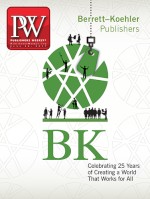In Sakey’s supernatural thriller Afterlife (Thomas & Mercer, July), two FBI agents die and enter a realm where they battle a centuries-old satanic entity.
I’m dead. It’s okay. Just a fragment of dream knowledge, the way you recognize someone is your sister even though she’s wearing your best friend’s face. I’m dead, but still in Chicago. The buildings are familiar but dark. The streets are packed with motionless cars. Everyone is gone.
No. With that same dream certainty, I realize it’s me that’s gone. Everyone else is here—the cars have drivers, the sidewalks bustle—but being dead, I’m at a right angle to the world.
I’m not frightened. It isn’t a nightmare. Until I wake up. The dream becomes a nightmare when I see my sleeping wife, and imagine being in the same space, the same house, the same bed, and yet not able to see her, talk to her, touch her.
The best stories are the ones with roots creeping into the sticky dark parts of our psyches. This dream had that juice. There was a book there.
But I wasn’t sure I should write it, for two reasons. The first is that I had just wrapped up a trilogy that began with Brilliance, in which one percent of humanity are born savants, able to do things the other 99 of us only dream of. Film rights went in a seven-figure deal with Will Smith attached. I earned an Edgar nomination. The trilogy has sold well over a million copies. So there was a temptation to continue writing in the Brilliance universe instead of breaking new ground.
The second reason not to write it was that it scared me—scared me huge. The notion was sprawling, complicated, and weird. Would anyone be interested? How to drag a dream onto the page in a way that was thrilling and visceral? It took months of banging head-shaped holes in the wall before I found the answer. I didn’t want to write a dream—I wanted to write a myth.
Myths are born of the sticky dark. That’s why the truest have survived thousands of years. They present fictional answers to primal questions: Why do tragic things happen? Which is stronger, love or death? What if death is just the beginning?
I wanted to write a modern myth of the afterlife, rooted in science and philosophy. Forget heaven and hell, judgment or divine agency; I built existences nested like Russian dolls, each revealing one beyond. What turned a dream into a nightmare was imagining being near my wife without being able to interact with her, so I knew the book would be a love story. Because myths need monsters, I knew that the protagonists would be modern-day monster hunters: FBI agents. And the monster? He’d be something else entirely. A beast born of both the living world and the echoes that follow.
This book, my ninth, was by far the hardest I’ve written. Many days I hated myself for not taking the sensible option. Every time I sat down at the keyboard, I was afraid. Maybe that’s why I love it so much.
I hope it messes with your dreams.



 Volume 264
Issue 26
06/26/2017
Volume 264
Issue 26
06/26/2017





